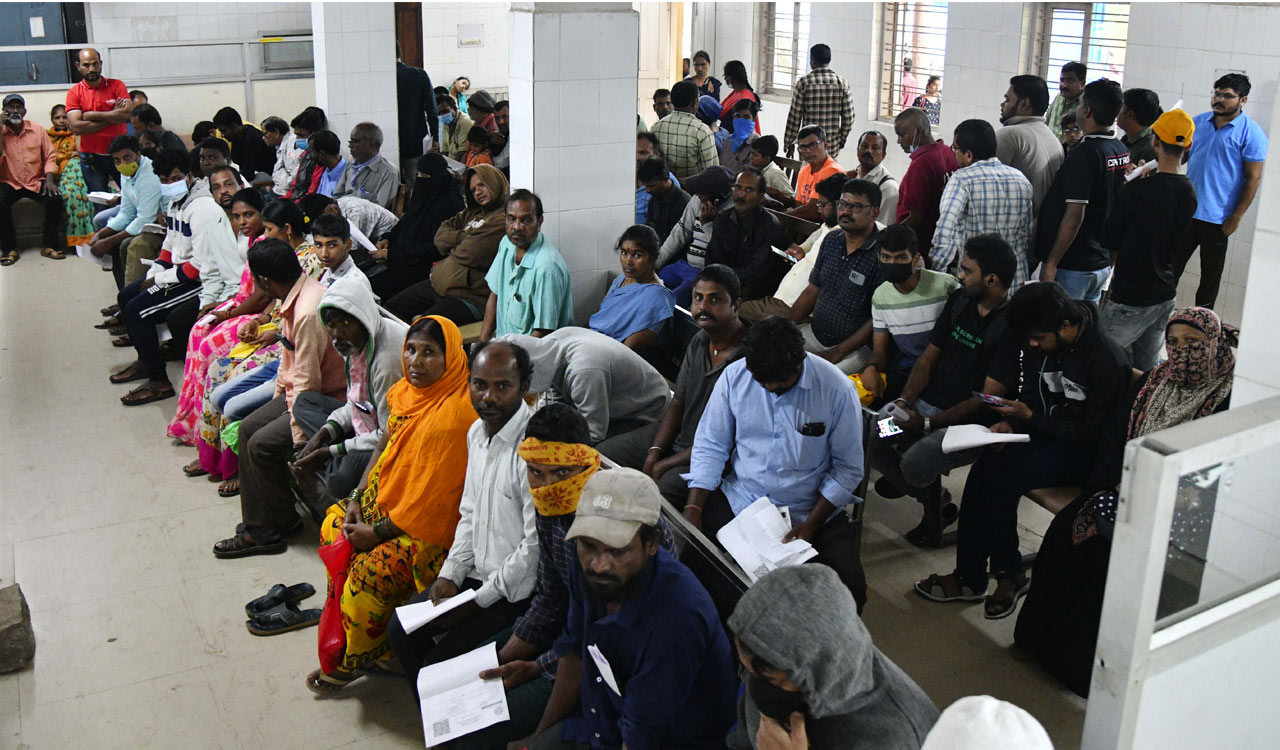Voter apathy is worrying
Civic disengagement is a fertile ground for popular leaders to exercise absolute power and could lead to despotism

In contrast to direct democracy in which citizens involve directly in the political processes, the representative or modern day democracy centres around delegates or representatives who act as a bridge between the state and citizens. Representation and participation are essential for modern democracy. While the former deals with political parties, politicians and the houses of representation, the latter deals with the role of citizens in upholding the spirit of democracy.
The level of engagement of citizens in modern democracy reflects in the polling percentage/voter turnout at the time of elections. Low voter turnout in the recently concluded Greater Hyderabad Municipal Corporation (GHMC) elections has once again caught the attention of democracy lovers.
Yes, this can be partly attributed to the coronavirus pandemic and the fears of the second wave of Covid-19 might also have forced the voters to stick to their homes. The growing trend of low voter turnout at all levels — local, provincial or national — in democratic countries across the world has been posing a threat to the idea of democracy itself.
Casting Votes
It is true that modern democracy limits the role of citizens. In a representative democracy, other than casting votes, citizens hardly involve in day-to-day affairs of the state. Theoretically, there are several factors that influence voter turnout. On the individual level, factors like literacy levels, economic status, proximity to polling station, connectivity, weather conditions on the election day, availability of choice among the contesting candidates, election manifestos of political parties and so on, play a decisive role. Contrary to popular belief, higher literacy and economic levels of the citizens doesn’t mean higher voter turnout.
It is preposterous to see democracy solely as a political idea. It encompasses personal, political, social, economic and cultural domains. There is a dichotomy between democracy and neo-liberalism. Although democracy guarantees civil and political rights, it is the general good of the community that prevails over the individual good.
Democracy is an enlightening experience that educates an individual about society and its dynamics. Neo-liberalism has forced citizens to shed the collective and communitarian spirit. Rugged individualism, complemented by materialism, detaches an individual from society.

Engagement of Citizens
Civic disengagement leads to despotism as it provides a fertile ground for popular leaders to exercise absolute power. Quality of governance is directly linked to the engagement of citizens in the political space. More the involvement of citizens in the political process, higher the quality of governance. Apathy among the citizens towards politics allows political masters to act and design policies according to their self-interest.
Currently, citizens’ impassivity towards politics in general, and elections, in particular, could also be attributed to de-ideologicalisation of politics as political parties, whichever in power, all over the world have been failing to provide an alternative plan of action. Apart from managing the affairs of the day, political parties have been failing to create a difference.
Earlier, elections were fought on ideological basis and citizens had a choice to vote for a party among the available options depending upon her/his ideological leaning. As the distinction among the political parties is blurring, citizens are being left with no choice. So, many a time, they decide to keep themselves away from the political space.
Although it depends upon the personal choice of an individual whether to cast vote or not, it is a moral responsibility on the part of an individual to ensure the stability of the state (political authority). Rights always come with responsibilities, legal and moral. Yes, casting a vote is not a legal obligation or failing to exercise it doesn’t entertain any penal action. But it is important to understand that civic disengagement is one of the reasons for the decay of democratic institutions and democratic backsliding. As the ultimate and real power in a democracy lies in the hands of people, the retreat of citizens from the political arena paves the way for autocratic rule. Lower voter turnout is not only a sign of declining social capital but also make democratic apparatus ineffective.
Age of Neo-liberalism
In the age of neo-liberalism, every aspect of human life has been commercialised. Cultural hegemony of neo-liberalism, which stresses on narrow self-existence, has been creating a society where individuals are least concerned about the community and collective good of humanity.
No doubt, the prevailing education system has been creating sophisticated minds but its emphasis on competition, rather than co-operation, has been taking a toll on the community and social fabric. Rather than making voting mandatory, it is important to address the root cause of the problem.
The present education system has failed to sensitise the youth about the democratic process and politics as a whole. With excessive stress on career and comforts, the competition driven neo-liberal education system has been producing self-obsessed and self-seeking individuals with no humane touch.
It is surprising to see that the voting percentage is higher in rural areas compared with urban centres. It is important to make the young generation aware of historical struggles behind the universal suffrage and how hard the previous generations fought to realise the right to vote for all.
Going by the economic and sociological understanding of the current trend in politics, while the richer are becoming politicians, the poor are left with no choice other than to vote for the rich whereas middle-class segments are largely isolated from the political process.
(The author is Director, Samudrala VK IAS Academy)
Now you can get handpicked stories from Telangana Today on Telegram everyday. Click the link to subscribe.
Click to follow Telangana Today Facebook page and Twitter .
Related News
-
Rajasekhar plays ‘Bullet’ Sunil in Sharwanand’s ‘Biker’
27 seconds ago -
RS Praveen Kumar asks Harvard to revoke Revanth Reddy’s certificate
19 mins ago -
India shine on Day 2 of BOXAM Elite International in Spain
41 mins ago -
KTR to commence municipal poll campaign in Sircilla on Thursday
1 hour ago -
JioStar to broadcast ICC Men’s T20 World Cup 2026 across TV and digital platforms
2 hours ago -
Secunderabad Cantonment Board e-Chhawani portal hits a glitch, halts revenue transactions
2 hours ago -
Group C promises fireworks at ICC Men’s T20 World Cup 2026
2 hours ago -
Preventive arrests in Karimnagar ahead of CM’s tour
2 hours ago




